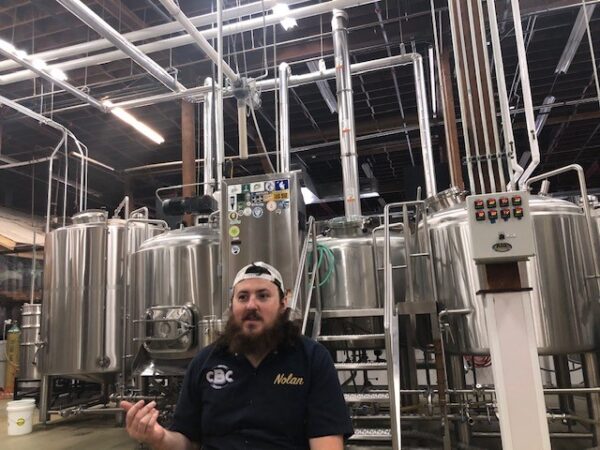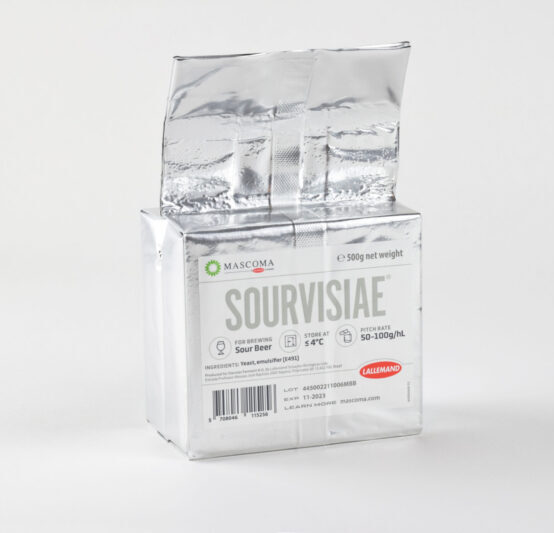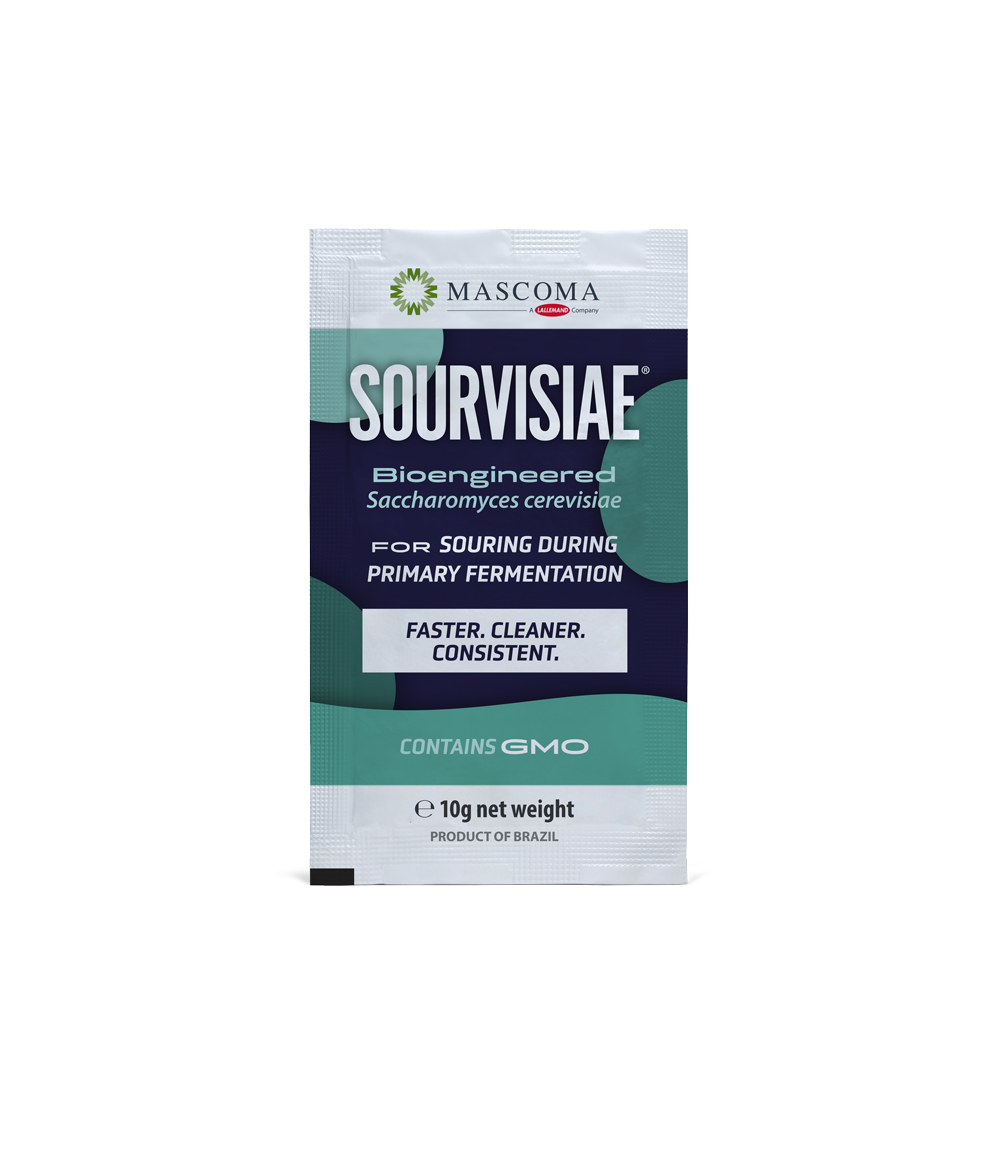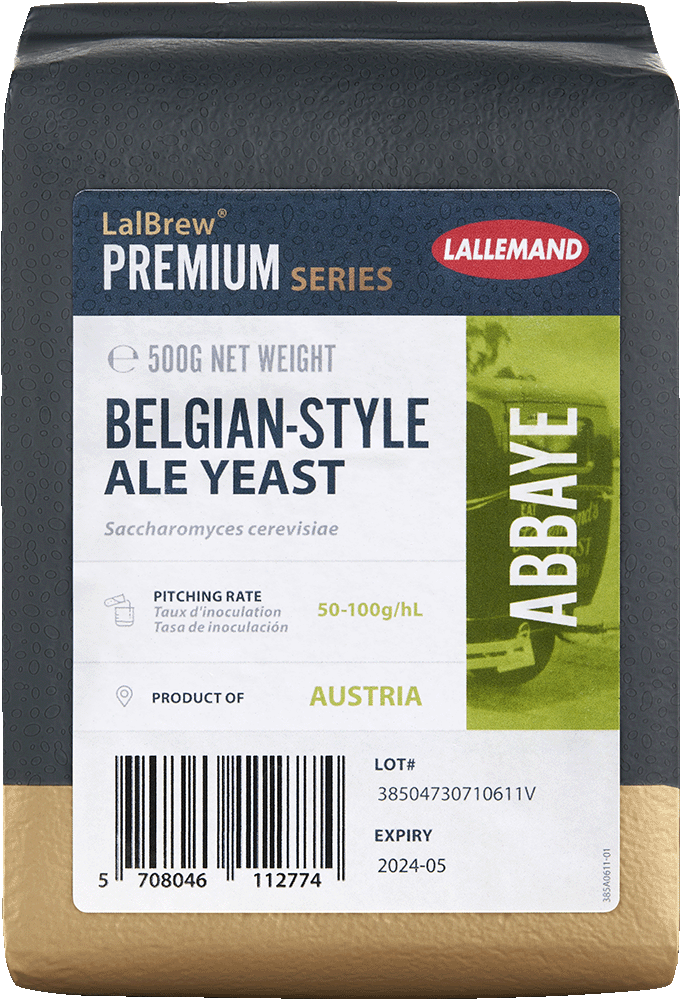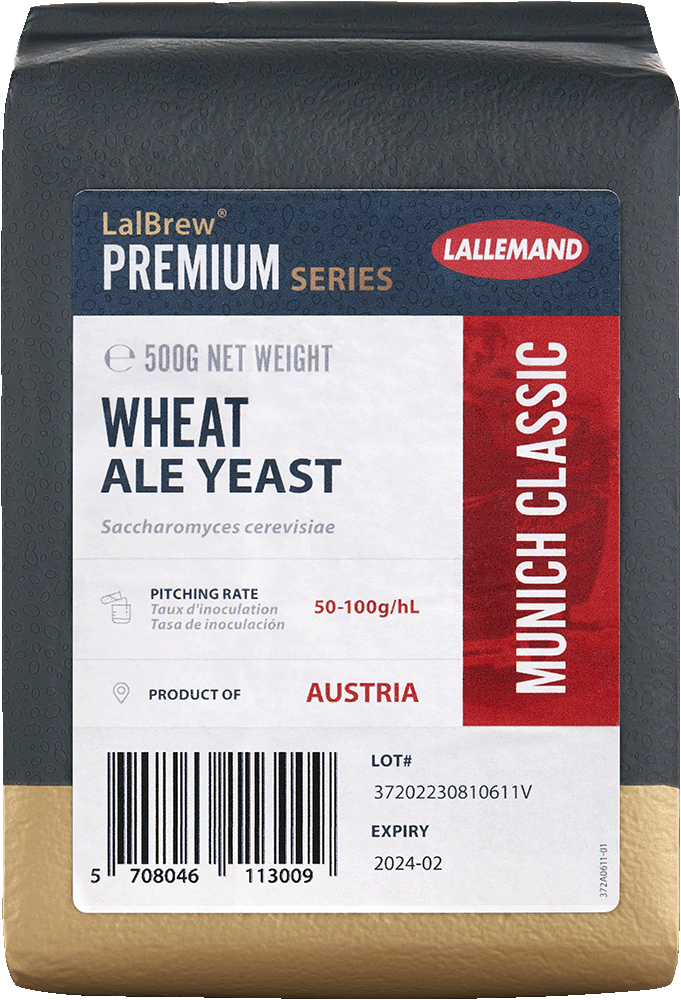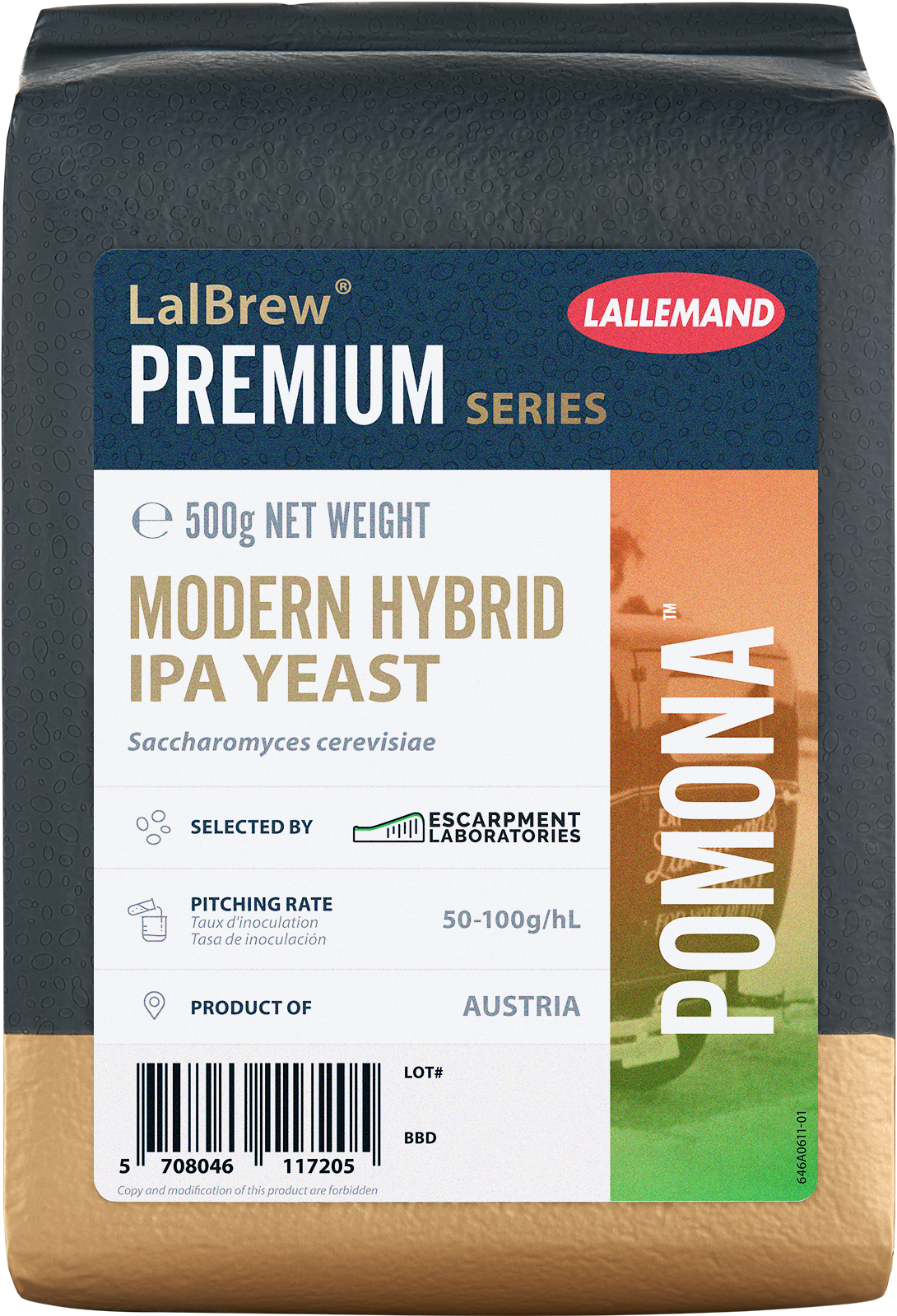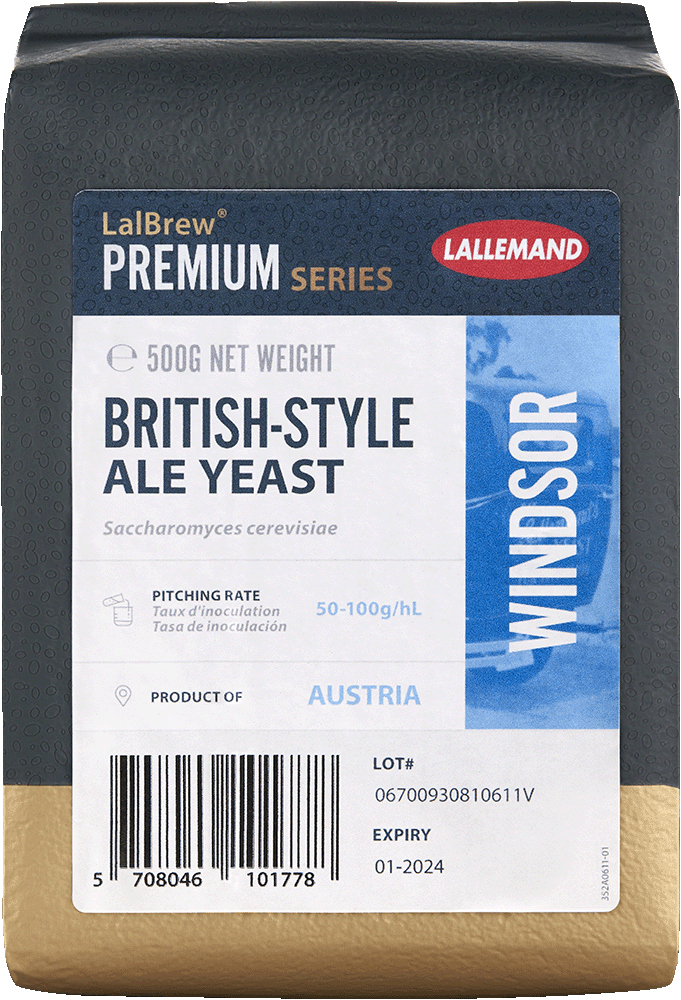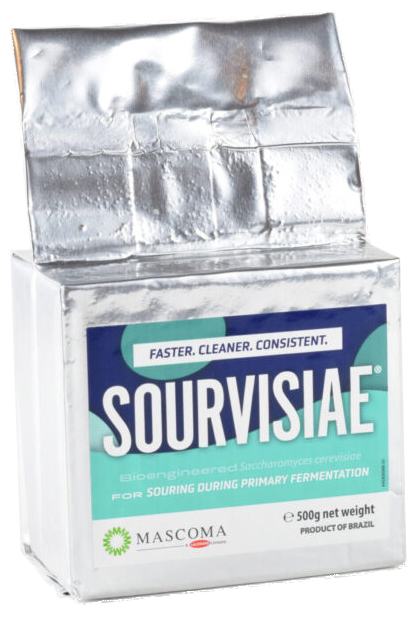
Sourvisiae®
Sourvisiae® is a bioengineered (GMO) strain of Saccharomyces cerevisiae capable of producing lactic acid in addition to alcohol during fermentation. Sourvisiae® contains a single genetic modification, a lactate dehydrogenase gene from a food microorganism, which enables the yeast to produce high levels of lactic acid when used as a pure culture, or lower levels when blended with another brewing yeast strain.
Sourvisiae® allows the brewer to ferment and sour the beer in one simple step, reducing cross-contamination risks, lowering costs and cutting total process time. The brewing process is conducted without any modifications; Sourvisiae® is pitched just like conventional yeast and ferments in a normal fermentation time. Sourvisiae® does not produce other flavor compounds associated with Brettanomyces, Lachancea, or Lactic Acid Bacteria, providing a cleaner and more consistent and reproducible souring process.
Sourvisiae® is safe, non-hazardous and Generally Recognized as Safe (GRAS) by the US Food and Drug Administration.
Not all products are available in all markets nor associated claims in all regions.
Quick facts
| Strain | Bioengineered (GMO) Saccharomyces cerevisiae |
|---|---|
| Attenuation | 76-82% |
| Temperature range | 15 - 22°C (59 - 72°F) |
| Flocculation | High |
| Aroma | Tangy, intensely sour, slightly fruity |
| Alcohol tolerance | 12% ABV |
| Pitching rate | 50 - 100g/hL |
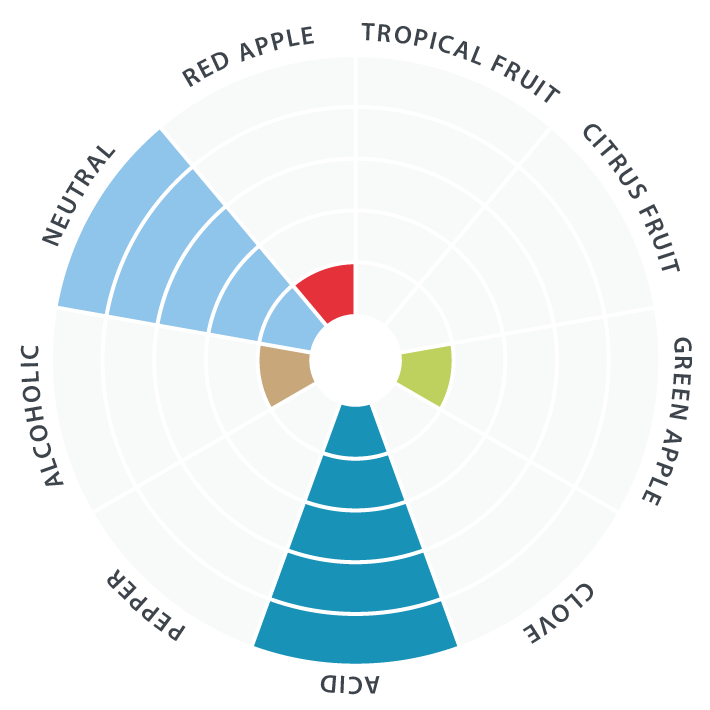
Video
GMO
As a global company, Lallemand Inc. focuses on developing, producing, and marketing yeast, bacteria, and specialty ingredients. Recently, with the introduction of Sourvisiae®, Lallemand has become a leader in genetically engineered yeast used in the brewing industry. Sourvisiae® was developed at Mascoma, one of Lallemand’s corporate research and development facilities, that specializes in biotechnology research.
Sourvisiae® contains a single genetic modification, a lactate dehydrogenase gene from a food microorganism, which was incorporated into the genome through the process of homologous recombination (Figure 2). By expressing this gene, Sourvisiae® can produce both ethanol and lactic acid during fermentation. This allows the brewer to ferment and sour the beer in one simple step
Please click here to learn more about Mascoma and the science behind our genetically engineered strains.
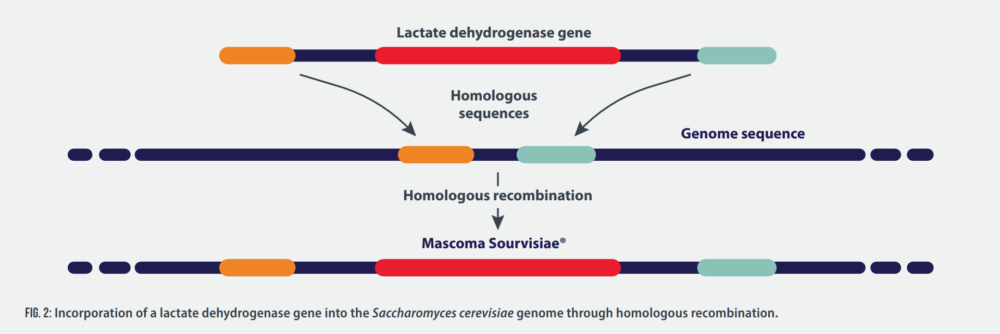
Testimonials
I love working with dry yeast because we can keep a couple of months’ worth in the cooler and we can use those as needed to repitch. It’s also really high-quality yeast range, with lots of strains to choose from. We have been using the Sourvisiae which is great for good clean lactic acid. It easier to get a higher level of acidity than if you were using a kettle sour. We also have Philly Sour that we haven’t used yet, I’m excited to try it.
